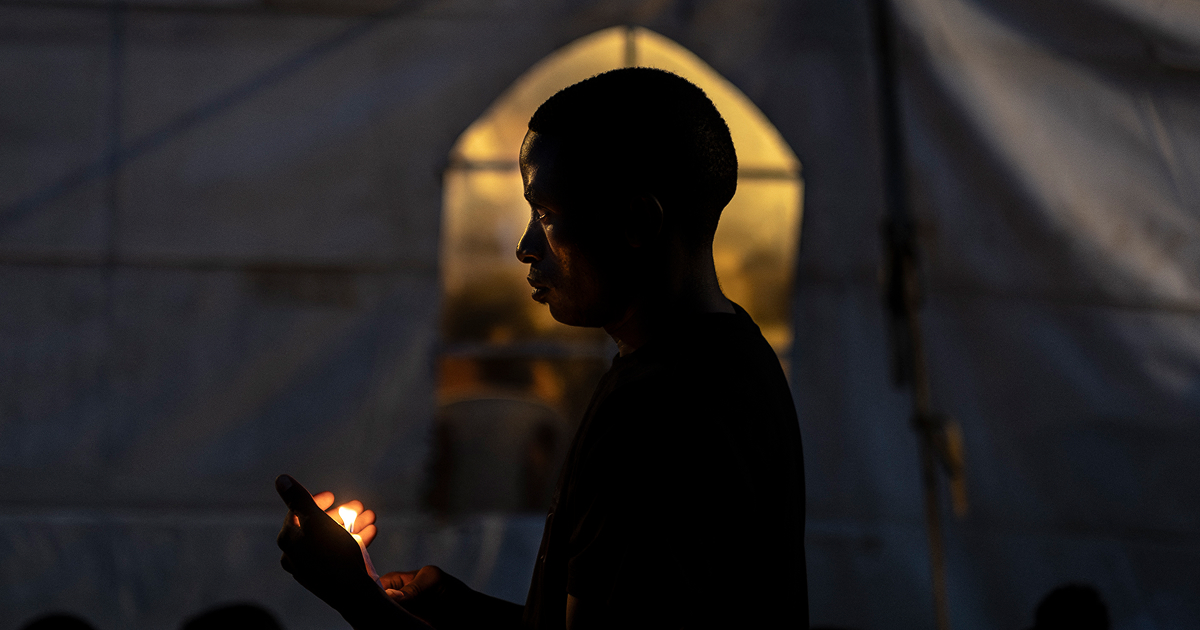In a single act of dissent — his refusal to consent, on the Feast of Christ the King, to a Bill legalising abortion — has Albert, Prince of Monaco, rescued his Principality from the tag “a sunny place for shady people”?
Despite the National Council’s vote in May (19 to 2) to allow terminations up to 12 weeks of pregnancy, or 16 weeks in cases of rape, and to reduce the age of parental consent from 18 to 15, the Prince instructed his government not to implement the measure. He added, “I believe the current system expresses who we are, considering the role of the Catholic religion in our country, while ensuring safe and humane support.”
His decision echoed the views of his mother, Grace, who was quoted in 1971 as saying she was firmly against abortion, “any kind, legal or illegal.” On the psychological trauma resulting from abortion, she said: “I certainly feel that way. Doctors tend to think that it is over in half an hour. It’s not that simple. The psychological consequences last for many years afterward.”
This latest act from the Grimaldi dynasty, which began in 1297 when François Grimaldi, disguised as a Franciscan monk, captured the fortress atop the Rock of Monaco with the support of his cousin Rainier I and his men, helps explain their longevity and reinforces the title “Catholic Sovereign”. Perhaps the Vatican’s conferral in 2013 of the privilège du blanc on Albert’s consort, Charlene — a privilege denied to his mother — has brought him closer to the Church?
These issues of conscience have tested the heads of a number of ruling Catholic European houses over the last three decades, major questions for what the media insists on dubbing “micro-states”.
In 1990, King Baudouin of the Belgians, long known with his consort, Fabiola, for their commitment to the rights of the disabled, especially disabled children, was asked to approve the legalisation of abortion in his kingdom. His signature was essential, but Baudouin opposed it as a violation of the most basic human right: the right to life.
When he told Fabiola his refusal could result in his abdication, she replied: “I know how to do a good day’s work. I still have my lifesaving certificate from the Red Cross.”
On 31 March, Baudouin sent a personal note to Prime Minister Maertens, expressing “serious worries about the clause permitting abortion to be practised beyond twelve weeks if the child to be born is afflicted with ‘a particularly grave anomaly recognised as incurable at the moment of diagnosis’ … In short, I fear that this law will contribute to a palpable diminution of respect for the lives of the weakest among us. To those who may be shocked by my decision, I ask them: Is it right that I am the only Belgian citizen to be forced to act against his conscience in such a crucial area? Is the freedom of conscience sacred for everyone except for the king?”
Prime Minister Maertens proposed an ingenious à la belge compromise. Article 82 of the Belgian Constitution stipulated that when the monarch was in a state of incapacity to govern, the royal powers devolved to the council of ministers. So the King abdicated, and during the vacuum the council of ministers ratified and promulgated the abortion law. On 5 April, 36 hours after the abdication, the Prime Minister advised that the King was now capable of governing and he resumed his powers.
Baudouin later wrote in his journal, “If I hadn’t done this I would have been sick my entire life for having betrayed the Lord.”
Thirty-four years later, the King’s act was recalled by Pope Francis on his visit to Baudouin’s tomb. After Mass there on 29 September last year, the Pope announced that he would begin the beatification process for the King because “they gave me proof of [the King’s] holiness.”
The Pope later said, “Women have a right to life, to their life, and to the life of their children. Let’s not forget to say this. An abortion is a homicide … it kills a human being. The doctors who carry this out are hitmen … And on this there is no debate.”
In December 2008, Baudouin’s nephew, Grand Duke Henri of Luxembourg, faced a similar crisis. Earlier that year, Luxembourg’s parliament had approved a euthanasia bill allowing doctors to end the lives of the terminally ill under strict conditions. The vote passed 30–26, but when Prime Minister Jean-Claude Juncker presented it for assent, the Grand Duke refused “for reasons of conscience.”
The government responded by amending Article 34 of the constitution, stripping the Grand Duke of his veto. Parliament then passed the bill, which no longer required his sanction, only his enactment. This placed him, and now places his son Guillaume, in the same position as the British monarch.
Questions have since been asked about the late Queen Elizabeth II’s position regarding Royal Assent to the Abortion Act 1967. In a compelling article for The European Conservative (March 2024), Dr James Bogle argued that “the British Monarch cannot be blamed for failing to exercise a discretionary power that, under the constitution, she does not have. The blame for the Abortion Act 1967 lies with the elected government, not with the Queen … merely obeying ministerial ‘advice’ to certify that a Bill has passed both Houses of Parliament is not immoral. It does not represent approval of the contents of that Bill.”
Dr Bogle quoted President François Mitterrand’s comparison of the French head of state’s role to that of a notary. During the 1965 presidential campaign, General Charles de Gaulle was shocked when Mitterrand canvassed the legalisation of contraception. Eleven bills were proposed between 1958 and 1967; none made it onto the agenda. Eventually, the General invited Lucien Neuwirth, architect of the Bill, to the Élysée. Neuwirth urged: “You gave women the right to vote. Now give them the right to control their fertility.” After a long silence, the General replied: “That’s true, passing on life is important. It must be a conscious decision. Keep going!” He would never have countenanced legalising abortion. When that Act came before the President in 1974, Valéry Giscard d’Estaing acted as notary and simply promulgated it.
In 2010, His Catholic Majesty Juan Carlos of Spain was required to sign a new law easing restrictions on abortion. The bishops announced they would take no action against him: “That his majesty the king must sanction this law with his signature is a unique situation. No other citizen would encounter this,” and therefore “general principles” could not be applied.
The sovereigns’ conscience was tested again in 2012 for Hereditary Prince Alois von und zu Liechtenstein, regent for his father, Prince Hans-Adam II. When confronted with a popular initiative to legalise abortion, he announced that he would veto any such bill regardless of the vote. The initiative was rejected by 51.5 to 48.5 per cent.
This provoked another initiative seeking to limit the Prince’s veto. Under the Constitution, the monarchy could be abolished at any time by referendum, but so long as it existed, the Prince retained a veto on all legislative matters.
Prince Alois declared that, rather than accept an obligation to promulgate laws violating his conscience and fundamental human rights, he and his family would renounce the throne and leave the country. On 1 July 2012, 76 per cent of Liechtensteiners rejected the proposal.
Interestingly, two years later, Alois’s cousin King Philippe II of the Belgians signed into law the right of Belgian minors to choose euthanasia. He did not invoke the constitutional mechanism used by his uncle Baudouin in 1990.
The latest test confronting a European prince is troubling the head of another micro-state, Andorra. Two co-princes serve as heads of state: the President of France and the Bishop of Urgell. The Prince-Bishop, Josep-Lluís Serrano Pentinat, appointed in July 2024, has been asked to sign into law the decriminalisation of abortion while maintaining its ban. A complementary law is planned to allow state funding for women to travel abroad for abortions.
The Constitution permits a single signature from either co-prince, so controversial issues are usually left to the French president. Jacques Chirac authorised same-sex civil unions in 2005, and Emmanuel Macron approved medically assisted procreation in 2019.
But in this case, the Holy See has intervened. In September 2023, Cardinal Pietro Parolin visited the principality, and Pope Francis later told clergy in France of the necessity of saying “no, I cannot” when truth is at stake. The issue remains unresolved.
The Prince of Monaco’s interjection is one of the clearest examples of the highest echelon of society defending the weakest, with apparent success. Democracy is a fine thing, but there is something to be said for the divine might of kings.
(Photo by -/BELGA/AFP via Getty Images)

















